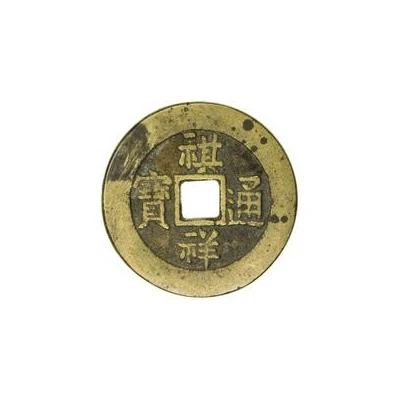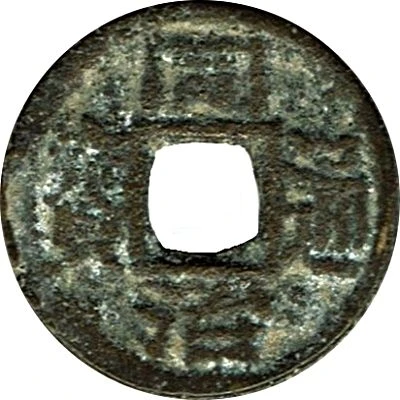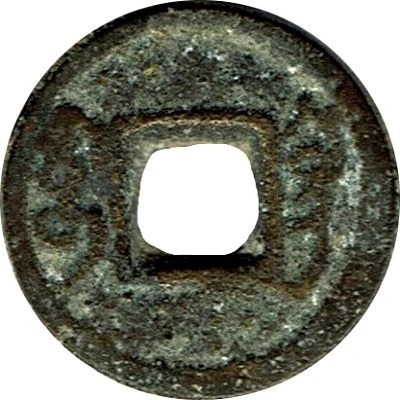1 Cash - Tongzhi Tongbao; Boo-u ND
| Brass | - | 19 mm |
| Issuer | Empire of China |
|---|---|
| Emperor | Qing dynasty › Tongzhi (同治帝) (1861-1875) |
| Type | Standard circulation coin |
| Years | 1862-1863 |
| Value | 1 Cash |
| Currency | Cash (621-1912) |
| Composition | Brass |
| Diameter | 19 mm |
| Thickness | 0.7 mm |
| Shape | Round with a square hole |
| Technique | Cast |
| Orientation | Medal alignment ↑↑ |
| Demonetized | Yes |
| Updated | 2024-10-03 |
| Numista | N#26634 |
|---|---|
| Rarity index | 93% |
Reverse
Two Manchu words (read vertically) separated by the hole.
Script: Mongolian / Manchu
Lettering: ᠪᠣᠣ ᡠ
Translation: Boo-u
Edge
Plain
Comment
After casting only 2,000 strings, casting was stopped.Interesting fact
One interesting fact about the Tongzhi (Tongbao; Boo-u) ND (1862-1863) coin from the Empire of China made of Brass is that it was produced during a time of significant economic and political change in China. The Tongzhi era saw the introduction of new currency and the abolition of the traditional system of casting cash coins, which had been in place for over 2,000 years. This coin, made of brass, was part of a series of new currency introduced during this time, and it features a unique blend of traditional Chinese design elements and Western-style engraving techniques. This coin is a rare and valuable piece of Chinese numismatic history, and it serves as a fascinating example of the cultural and economic exchange that occurred between China and the West during the 19th century.



